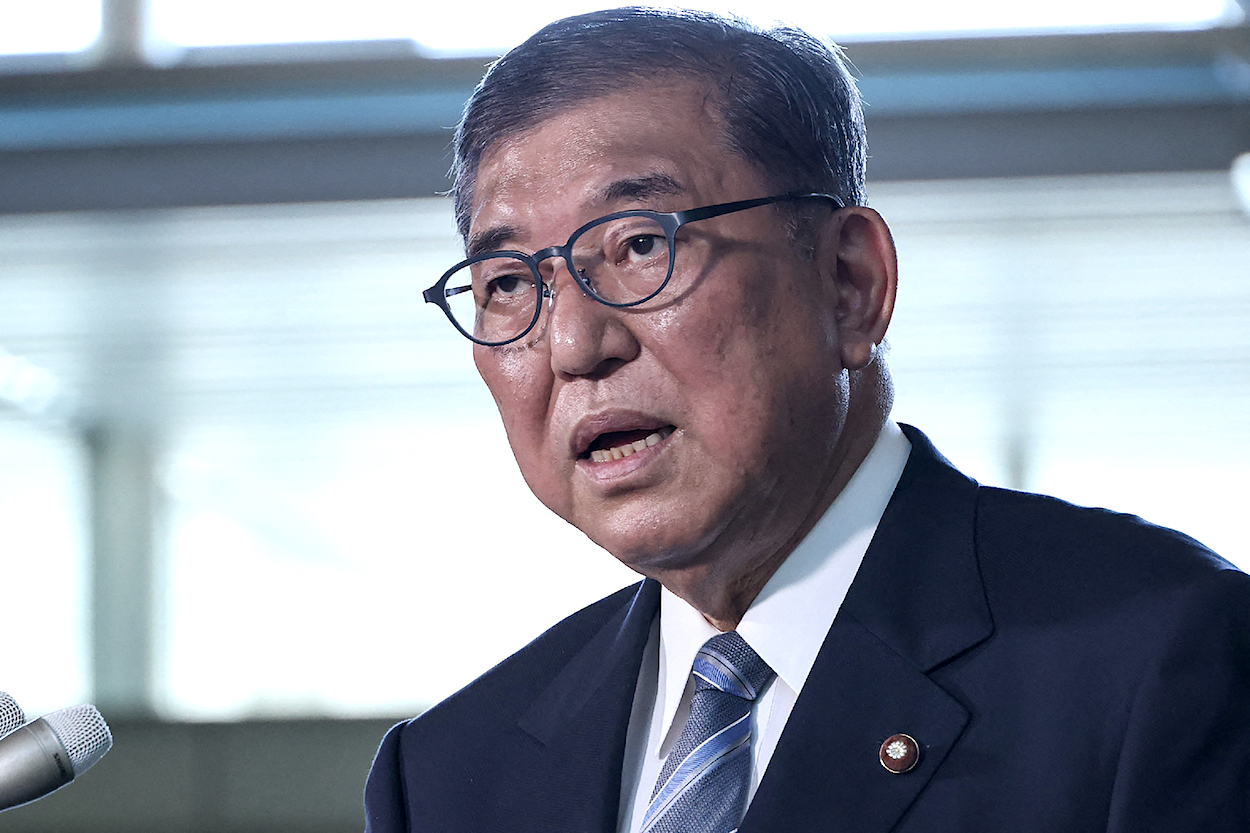Relief. That was the overriding emotion in the Japanese financial markets and society at large today when, after months of speculation and discord, a trade deal was finally struck between President Trump and Japanese Prime Minister Shigeru Ishiba’s trade representative Ryosei Akazawa.
The Japanese envoy, who has made eight trips to Washington in pursuit of an agreement, finally pulled it off just a week before the 1 August deadline (after which a hefty 25 per cent levy would have been imposed on all Japanese goods to the US). With the deal, that will be reduced to a probably manageable and reciprocal 15 per cent. Included in the package was an agreement that Japan would invest $550 billion in the US (details to be announced).
The immediate market reaction to the agreement was very positive. Asian (not just Japanese) stocks were significantly up, with the automakers doing especially well. The Nikkei rose 3.5 per cent and finished at around 41,000, just 1,000 points off its record high. Futures trading on the Osaka exchange rose by around 4 per cent. All told, it was a good day for the money men, though with the details still be clarified, how long this will be sustained remains to be seen.
For those not employed or invested in financial services though, there is relief of a different sort. The tariff episode has damaged what had been an, if not exactly ‘special relationship’, then certainly a generally warm and cooperative partnership between Japan and the US that people here had come to rely on.
Japan was apparently Trump’s favourite country of those he visited in his first term, thanks partly to the reasonable press he received and the lack of protests in the street. There was also a personal ‘odd couple’ (Felix and Oscar style) chemistry between Trump and former Japanese premiere Shinzo Abe that was as palpable as it was amusing.
That was then; the mood has since changed considerably. Ishiba’s comment early on in the trade dispute that Trump’s policy was ‘difficult to understand’ was an understatement that hinted at a sense of betrayal. The daily media coverage in the press and on national broadcaster NHK has become much more critical of Trump 2.0.
The prospect of a new era with a relationship based solely on the narrow focus on trade figures was disturbing here in Japan for more than simply economic reasons. To the generally pro-American Japanese, it felt like a chilling reclassification of what they had thought was a deep-rooted alliance. The pain was especially acute in political circles as Republican presidents had always been seen as especially supportive (there has a been a degree of animus against Democrats ever since Bill Clinton skipped Japan on an Asian tour in 1998).
In light of this, Trump’s heralding of the deal as confirming that ‘we will always have a great relation with the country of Japan’, though it may be a pro-forma statement, will reassure the disillusioned to some extent, and there will be hope that things can be patched up. Wise observers will question, though, how great the deal really is, and whether it was finalised less out of loyalty to an old friend as out of the need for Team Trump to chalk up a big win as the August deadline loomed.
Ishiba’s coalition government came close to hanging on to their majority
A visit to Japan to further heal the wounds might not be a bad idea, but if such a meeting occurs, it is not clear that Ishiba will be the one to greet the Donald at Narita airport. The trade deal comes a little too late to help him and he remains, after a bruising Upper House election, on resignation watch.
Ishiba’s coalition government came close to hanging on to their majority in Sunday’s vote but failed, and the parliamentary arithmetic is now dismal. Along with coverage of the trade deal, Ishiba will have read in the morning papers of a poll that puts his cabinet at their lowest approval rating since he took office.
This seems a little unfair. Heads will be scratched over why, unless some sort of last-minute magic was worked by Akazawa at his meeting in the White House on Tuesday, which seems unlikely, the deal could not have been announced before the election? It could be that Trump and Ishiba just didn’t take to each other. There is a distinct lack of warmth between the two men. Ishiba even snubbed Trump by leaving a Nato summit early, when a meeting was predicted, and declining to fulling endorse the US bombing of Iranian nuclear installations.
Ishiba certainly didn’t go out of his way to flatter Trump, which many here respect. The deal may be the best that could have been achieved in the circumstances. But all that will count for naught if, as expected, Ishiba is soon forced out to join the very long list of short-lived Japanese prime ministers.









Comments